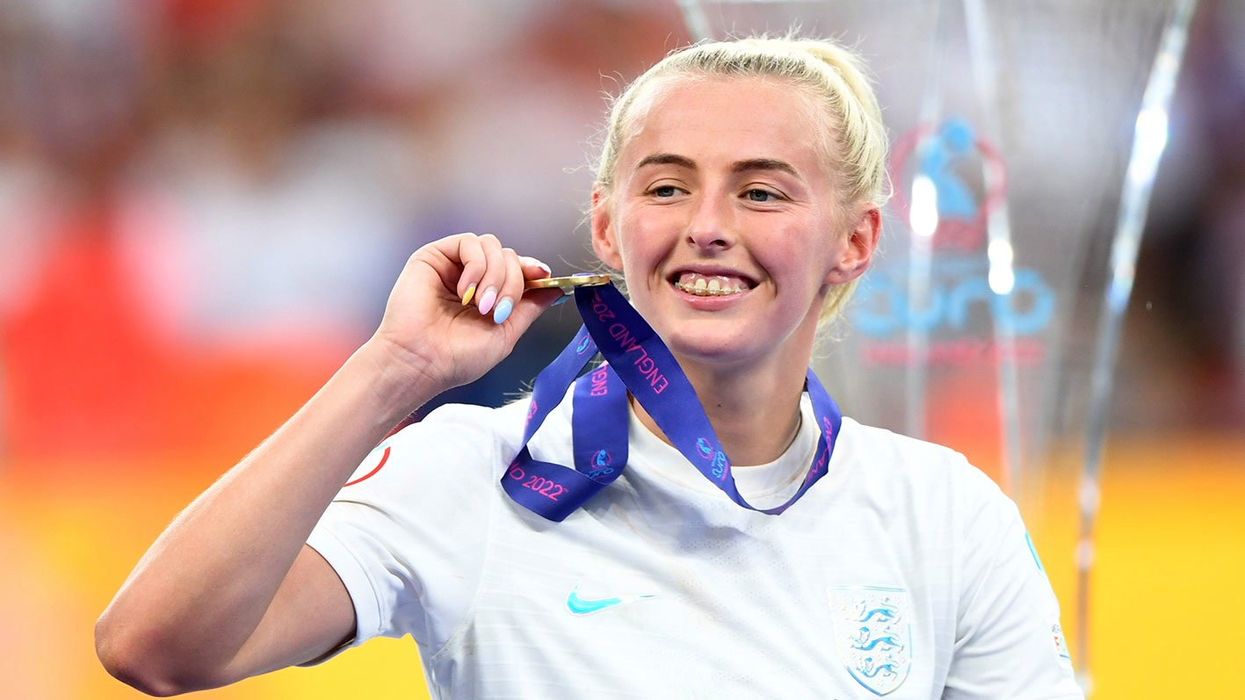Football fans are counting down the days until the Women's World Cup.
The tournament takes place in July and will be co-hosted by Australia and New Zealand. And if the Euro 2022 is anything to go by, it looks like it will be the sporting event that will dominate the summer.
Indeed, it is the biggest women's football tournament since England won the Euro 2022 last year, beating Germany in the final.
And it follows the last World Cup in 2019, which was won by the United States in France.
But while these events are household names, sports fans have not always been as interested in women's football as they are now.
Sign up to our free Indy100 weekly newsletter
The statistics speak for themselves. According to FIFA, a combined 1.12 billion viewers tuned into official broadcast coverage of the 2019 world cup across all platforms. The average number of viewers doubled that of the previous tournament.
And the 2022 Women's Euro was watched by 365 million globally, European football governing body UEFA said. This was double the amount of the previous tournament in 2017.
Aside from viewers, sponsorships for women’s sports increased by 20 per cent in 2022; showing brands are keen to support it.
So how did we get here?
Not by accident. The Football Association (FA) launched a strategy to boost people's enjoyment of the sport.
Speaking about the strategy in a statement, Baroness Sue Campbell, the FA's Director of Women’s Football, said: “When we launched our Women’s and Girls’ strategy, Inspiring Positive Change, in October 2020 eight months into a global pandemic, we could not have foreseen the incredible two years that lay ahead. While things in the world have changed, we have remained constant in our belief that football has the power to change lives for the better and improve opportunities for girls and women across society."
Success became just as important as strategy. With England's Lioness team winning the Euro 2022, this boosted the profile of women's football, making it ever more popular. And with more popularity came more funding, which in turn raised the awareness of women's football. The cycle continues.
“The power of women's football was evident on 31 July 2022, a day that will live long in the memory for us all. One goal in the strategy was to 'win a major tournament’ but none of us could have imagined the impact of victory in a home tournament," Campbell added.
"When the Lionesses lifted the UEFA Women’s EURO trophy at Wembley Stadium in front of 87,000 fans, it was a moment of great joy, but it was also a moment of great opportunity. The reaction to the success and the way it transcended society has given us an unprecedented chance to change the future of the women’s game forever. It has turbo charged our strategy with demand growing right cross the game. We have seen more girls stepping forward to play, more fans filling our stadiums and new commercial partners all wanting to be part of this great movement for change."
Meanwhile in an article, sports scientist Dr Julia West also pointed to the increased exposure of women's football to people through the media as boosting women's football.
She wrote: "Free match-streaming and online channels have also helped raise the profile of the women’s game. Watching accessible matches brings players and teams into your home regularly and creates a fan bond. Players become household names. Even those who don’t watch or support football will know the names of a few more players than they think."
She added: "The success of women’s national teams across different sports also helps springboard the achievements of the Lionesses into our news reports more regularly. Possibly the worst regular coverage occurs in the printed media, with the exception of our Euros 2022 championship title reporting. The constant stream of posts, opinions and results keeps the game and its developments in current memory. This is vital for the future and success of competitive teams and leagues as it provides a platform for further investment."
It is clear the popularity of women's football is on the rise, then. Long may it continue.
Have your say in our news democracy. Click the upvote icon at the top of the page to help raise this article through the indy100 rankings.














